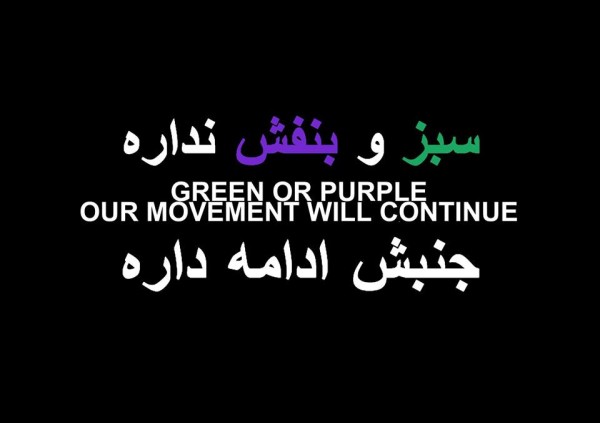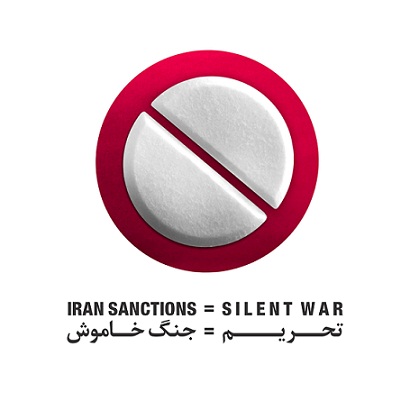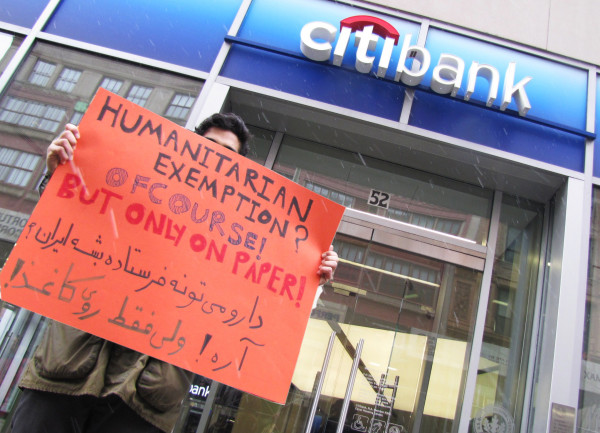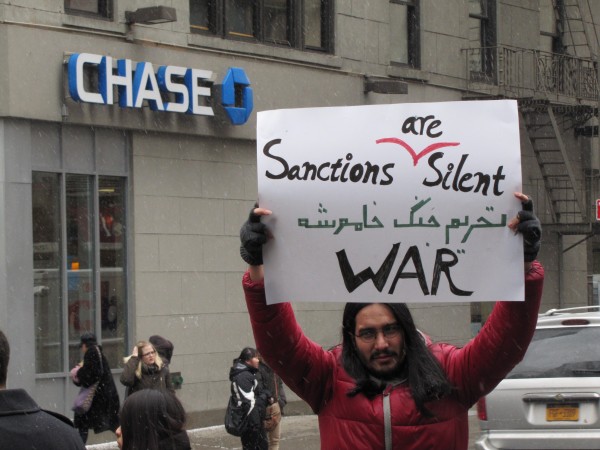English and Farsi versions of the letter to New York City mayor Bill de Blasio are below. The letter was also published by Mondoweiss. The Persian translation is available at the end.
Dear Mayor Bill de Blasio,
We are a group of Iranians and Iranian-Americans living in New York City. We are firmly committed to opposing state repression — regardless of the race, ethnicity or nationality of the people suffering, and regardless of whether the oppressive government is Iranian, American or otherwise. Throughout your mayoral campaign, we were encouraged by your call for an end to the NYPD’s systemic racial profiling of Black and Latino men under the “stop and frisk” policy. Many New Yorkers hoped that City Hall, under your leadership, would become a new and loud voice for human and civil rights.
That very same commitment to justice and human rights underscores our opposition to the devastating sanctions against the Iranian people. We were surprised and dismayed to find that the single foreign-policy position that you took as Public Advocate was calling for increasing sanctions on Iran. We were deeply concerned to see you encouraged ordinary New Yorkers to enforce the sanctions regime through your “Iran Watch List” web site, thus promoting the profiling of Iranians and aggravating post-9/11 Islamophobia. Because of sanctions, Iranians in the U.S. were arbitrarily chosen to have their bank accounts closed, and refused service at several retail stores, based on their appearance or names alone. We ask that support for sanctions against Iran be excised from your future political messaging. The Iranian people are not a threat to New Yorkers, or to any Americans, and the Iranian diaspora is a proud and integral part of this city.
We also ask that you reconsider your relationship with the American Israel Public Affairs Committee (AIPAC). Last month you addressed a private meeting with this group and said, “City Hall will always be open to AIPAC. When you need me to stand by you in Washington or anywhere, I will answer the call and I’ll answer it happily ’cause that’s my job.”
We disagree. AIPAC has relentlessly pressed for a more adversarial U.S. posture against Iran, explicitly promoting increased sanctions and implicitly pushing the U.S. to the brink of war. In a 2010 letter to members of Congress, AIPAC demanded “crippling” new sanctions on Iran. U.S. sanctions on Iran are a form of collective punishment that hurt the most vulnerable members of Iranian society first and foremost. AIPAC has similarly been a consistent supporter of Israel’s atrocious violations of Palestinian human rights.
As the mayor of NYC – one of the most diverse cities in the world – you were elected to represent all of us who live here. We stand with those Jewish New Yorkers who have recently said in their open letter to you, “AIPAC speaks for Israel’s hard-line government and its right-wing supporters, and for them alone; it does not speak for us.” We hope that you keep all of us in mind when formulating your foreign policy perspective and withdraw your unqualified loyalty to an organization that promotes policies so destructive to the children, women and men in Iran–and in Palestine–whom so many of your constituents hold dear. When AIPAC promotes collective punishment, neither they, nor the government of Israel, share our values. When you stand by them, you do not stand by us.
Signed,
Mahboubeh Abbasgholizadeh, Zanan TV Executive Director
Ali Abdi, Ph.D. candidate, Yale University
Ervand Abrahamian, Professor of Iranian and Middle Eastern History and Politics, CUNY
Golnar Adili
Milad Afrasiabi
Padide Alizadeh
Yahya Alkhansa, Musician
Sheila Aminmadani
Kamrooz Aram, Artist and Adjunct Faculty, Parsons The New School for Design
Amir Arman
Maryam Aryai Rivera, Raha Iranian Feminist Collective
Mohammad Asgari
Farid Ashkan
Pooyan Aslani, New York University
Shoja Azari, Artist
Sepideh Azin, Architect
Shirin Barghi, Freelance Journalist
Golbarg Bashi, Professor of History, Pace University
Anahita Basirnia
Hamid Dabashi, Professor of Iranian Studies and Comparative Literature, Columbia University
Samira Darvishi, Ph.D. candidate, Stony Brook University
Saeid Divanbeigi
Bahareh Ebnealian
Kouross Esmaeli, Department of Media, Culture, and Communication, NYU
Yasmine Farhang
Ali Fouladi
Gisela Fouladi
Hadi Ghaemi
Setareh Ghandehari, Raha Iranian Feminist Collective
Arya Ghavamian, Filmmaker
Fahimeh Gooran Savadkoohi
Sara Hosseini
Koohyar Hosseini
Shima Houshyar, MA candidate, NYU
Nima Jafari, Architect
Mazdak Jafarian, Architect
Kiana Karimi
Mahdis Keshavarz, The Make Agency
Arang Keshavarzian, Professor of Middle Eastern and Islamic Studies, NYU
Mina Khanlarzadeh, Ph.D. candidate, Columbia University
Mana Kharrazi
Sina Mesdaghi, Associate at Handel Architects
Kamran Mirfakhraei
Ali Mirsepassi, Professor of Middle Eastern Studies and Sociology, NYU
Nazgol Moshtaghi
Mani Mostofi
Nahid Mozaffari
Saara Nafici, Brooklyn Botanic Garden
Nicky Nodjoumi, Artist
Sara Nodjumi, Filmmaker
Nazanin Norouzi
Naseem Nowruzi
Manijeh Nasrabadi, Ph.D. candidate, NYU
Mehrnoosh Oghbaei
Afshin Parvaresh, Artist
Hamid Rahmanian, Filmmaker/Graphic Artist
Saba Riazi, Filmmaker
Reza Roodsari, MD/MPH
Bahar Sabzevari, Artist
Mehdi Saharkhiz, Art Director
Samin Sajadi
Faride Sakhaei, Artist
Saman Sarraf
Niki Shah Hosseini
Sadra Shahab, City Planner, Pratt Center for Community Development
Narges Shahroudi
Setareh Shohadaei, Ph.D. student New School for Social Research
Amin Torabkhanian
Azin Valy, Architect
Shouleh Vatanabadi
Hanif Yazdi
Rustin Zarkar, Ph.D. student, NYU
———————
آقای بیل د بلاسیو، شهردار محترم نیویورک
ما امضاکنندگان این نامه جمعی از ایرانیان و ایرانی-امریکاییهای ساکن نیویورک هستیم. ما قویاً با سرکوب مردم از هر نژاد و قوم و ملتی که باشند مخالفیم–چه این سرکوب توسط دولت ایران صورت بگیرد، چه توسط دولت امریکا، چه دولتهای دیگر. شما در کارزار انتخاباتیتان از پایان دادن به سیاستهای نژادپرستانه و تبعیضآمیزِ پلیسِ نیویورک علیه سیاهپوستان و لاتینتبارها گفتید که در طرح «ایست و بازرسی» پلیس اجرا میشود. ما از فراخوانِ شما استقبال میکنیم. بسیاری از ساکنان نیویورک امیدوارند که مدیریتِ جدیدِ شهری به رهبری شما به صدای رسایی برای دفاع از حقوق انسانی و مدنی شهروندان بدل شود
همین تعهد به برقراری عدالت و رعایت حقوق بشر موجب شده که ما با تحریمهای ویرانکننده علیه ایران مخالف باشیم. باعث شگفتی و نگرانی ماست که تنها موضع شما در حوزهی سیاست خارجی در مقام وکیل عموم، دفاع از افزایش تحریمها علیه ایران بود. درخواست شما از شهروندان نیویورک برای بهاجرادرآوردنِ تحریمها از طریق وبسایت «ایران واچلیست»، عمیقن ما را نگران کرد چرا که این مواضع به تبعیضهای نژادی علیه ایرانیان میانجامد و اسلامهراسیِ پس از یازده سپتامبر را دامن میزند. در این مدت، حسابهای بانکی بعضی از ایرانیان ساکن امریکا به خاطر تحریمها بسته شده و بعضی از فروشگاهها تنها به بهانهی شکل ظاهری یا نام، از ارائهی خدمات به مشتریان ایرانی خود سرباززدهاند. ما از شما میخواهیم که دفاع از تحریمها علیه ایران را از گفتارهای سیاسی آیندهی خود حذف کنید. ایرانیان تهدیدی علیه ساکنان نیویورک یا شهروندان امریکایی نیستند و مفتخرند که بخش مهمی از این شهر را شکل میدهند
ما همچنین از شما میخواهیم که در رابطهی خود با «کمیتهی روابط عمومی امریکا و اسرائیل» (ایپک) بازنگری کنید. ماه گذشته در جلسهی خصوصیتان با این گروه گفتید: «مدیریت شهر همیشه به روی ایپک باز است. اگر شما [ایپک] در واشنگتن یا هر جای دیگر به من نیاز داشته باشید، با کمال میل در خدمت شما خواهم بود چون این شغل من است.» ء
ما با موضع شما مخالفیم. ایپک مصرانه به دنبال افزایش دشمنی آمریکا نسبت به ایران است، صراحتاً خواهان بیشترشدنِ تحریمهاست و تلویحاً امریکا را به آستانهی جنگ میکشاند. این سازمان در نامهی خود به اعضای کنگره در سال ۲۰۱۰ خواستار تحریمهای «کمرشکن» علیه ایران شد. تحریمهای امریکا علیه ایران شکلی از تنبیهِ دستهجمعی است که آسیبپذیرترین قشرهای جامعهی ایران را پیش و بیش از هر گروهی هدف قرار میدهد. ایپک همچنین یکی از مدافعانِ همیشگیِ نقضِ بیرحمانهی حقوق فلسطینیان توسط دولت اسرائیل است
شما به عنوان شهردار نیویورک – یکی از متنوعترین شهرهای جهان – برگزیده شدید تا نمایندهی همهی ساکنان این شهر باشید. ما با آن گروه از یهودیان ساکن نیویورک موافقیم که اخیراً در نامهی سرگشادهای به شما نوشتهاند: «ایپک نمایندهی دولت تندروی اسرائیل و طرفداران دستِ راستی آن است و فقط آنها را نمایندگی میکند. این سازمان نمایندهی ما نیست.»
ما امیدواریم هنگام تبیین دورنمای سیاست خارجیتان، همهی ما را به یاد داشته باشید و وفاداری بیاندازهی خود از این سازمان را پس بگیرید. ایپک مدافع سیاستهای ویرانکننده علیه کودکان، زنان و مردان ایرانی – و فلسطینی – است؛ انسانهایی که برای بسیاری از شهروندان نیویورک عزیز هستند. وقتی ایپک از تنبیه دستهجمعی مردم دفاع میکند، یعنی نه آنها نه دولت اسرائیل موافقِ ارزشهای ما نیستند. اگر کنار آنها بایستید، به ارزشهای خود برای دفاع از عدالت و حقوق بشر پشت پا زدهاید
یروند آبراهامیان، استاد سیاست و تاریخ خاورمیانه و ایران، کالج نیویورک
شجاع آذری، هنرمند
سپیده آذین، معمار
کامروز آرام، هنرمند، استاد دانشگاه نیواسکول
مریم آریایی، گروه فمینیستی رها
بهاره ابنعلیان
کوروس اسماعیلی، دانشکدهی رسانه، فرهنگ و ارتباط، دانشگاه نیویورک
فرید اشکان
پویان اصلانی، دانشگاه نیویورک
میلاد افراسیابی
یحیی الخنسا، موسیقیدان
شیلا امینمدنی
شیرین برقی، روزنامهنگار آزاد
گلبرگ باشی، استاد تاریخ، دانشگاه پیس
آناهیتا بصیرنیا
افشین پرورش، هنرمند
امین ترابخانی
نیما جعفری، معمار
مزدک جعفریان، معمار
سارا حسینی
کوهیار حسینی
مینا خانلرزاده، دانشجوی دکترا، دانشگاه کلمبیا
مانا خرازی
حمید دباشی، استاد ادبیات تطبیقی و ایرانشناسی، دانشگاه کلمبیا
سمیرا درویشی، دانشجوی دکترا، دانشگاه استونی بروک
سعید دیوانبیگی
سینا ذکاوت
حمید رحمانیان، فیلمساز، طراح
رضا رودسری، پزشک
صبا ریاضی، فیلمساز
راستین زرکار، دانشجوی دکترا، دانشگاه نیویورک
بهار سبزواری، هنرمند
مهدی سحرخیز، مدیر هنری
ثمین سجادی
فریده سخایی، هنرمند
نیکی شاهحسینی
نرگس شاهرودی
صدرا شهاب، برنامهریز شهری، پرت سنتر
ستاره شهدایی، دانشجوی دکترا، نیواسکول
سامان صراف
محبوبه عباسقلیزاده، مدیر زنان تیوی
علی عبدی، دانشجوی دکترا، دانشگاه ییل
گلنار عدیلی
محمد عسگری
مهرنوش عقبایی
پدیده علیزاده
یاسمین فرهنگ
علی فولادی
غزاله فولادی
هادی قائمی
ستاره قندهاری، گروه فمینیستی رها
آریا قوامیان، فیلمساز
کیانا کریمی
مهدیس کشاورز، رسانهی میک
آرنگ کشاورزیان، استاد مطالعات ایران و خاورمیانه، دانشگاه نیویورک
فهیمه گوران سوادکوهی
مانی مستوفی
نازگل مشتاقی
سینا مصداقی
ناهید مظفری
علی میرسپاسی، استاد جامعهشناسی و مطالعات خاورمیانه، دانشگاه نیویورک
کامران میرفخرایی
سارا نجومی، فیلمساز
نیکی نجومی، هنرمند
منیژه نصرآبادی، دانشجوی دکترا، دانشگاه نیویورک
سارا نفیسی، بروکلین بوتانیک گاردن
نازنین نوروزی
نسیم نوروزی
آذین والی، معمار
شعله وطنآبادی
شیما هوشیار، دانشجوی کارشناسی ارشد، دانشگاه نیویورک
حنیف یزدی





